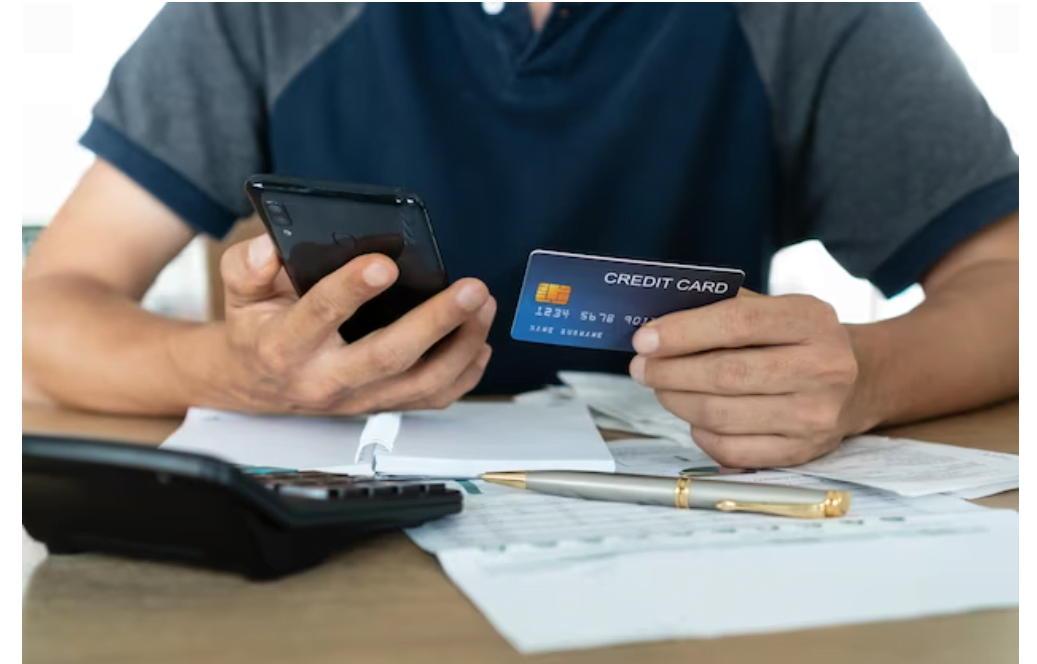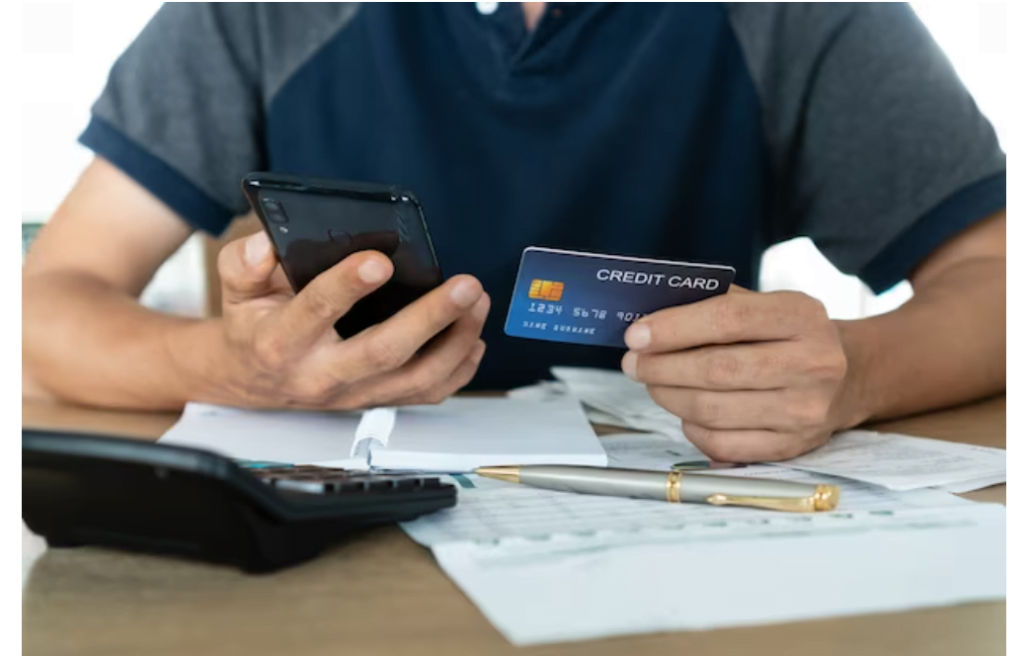In the vast landscape of personal finance, credit card debt stands as a common challenge that many face. The burden of accumulating interest, coupled with mounting balances, can make the dream of financial freedom seem distant. However, with a systematic and disciplined approach, breaking free from the shackles of credit card debt is not only possible but achievable.
In this comprehensive guide, we will navigate the intricate path of how to pay off credit card debt, providing actionable strategies and insights to pave the way for debt-free dreams.
Understanding How to Pay off Credit Card Debt
Credit cards offer convenience, but they also come with the potential for accumulating debt. Understanding the nuances of credit card debt is crucial for anyone aiming to achieve financial freedom.
The Basics of Credit Card Debt:
Credit card debt can be a financial challenge, but understanding its basics is the first stride toward regaining control of your finances.
1. Accumulation of Debt:
Credit card debt arises when you use your credit card for purchases but can’t pay the full balance by the due date. Unpaid balances accrue interest, potentially leading to a cycle of debt.
2. Interest Rates and APR:
Credit cards carry Annual Percentage Rates (APR), representing the cost of borrowing. High APRs mean higher interest charges, which can significantly contribute to the total debt.
3. Minimum Payments:
Credit card companies set a minimum payment due each month. While this might seem manageable, paying only the minimum can result in prolonged debt and increased interest payments.
4. Impact on Credit Score:
Credit card debt affects your credit score, especially if your balance is high relative to your credit limit. A poor credit score can limit your financial options.
Strategies for How to Pay Off Credit Card Debt
Credit card debt can be a weighty burden, but with strategic planning and commitment, you can pave your way to financial freedom. Here are effective strategies on how to pay off credit card debt:
1. Create a Budget:
Start by assessing your monthly income and expenses. Craft a detailed budget that allocates a specific amount for debt repayment. Identify areas where you can cut expenses to divert more funds toward paying off your credit card.
2. Prioritize High-Interest Debt:
If you have multiple credit cards, focus on paying off the one with the highest interest rate first. This approach minimizes the overall interest you’ll pay, accelerating your journey to debt freedom.
3. Consolidate with a Balance Transfer:
Consider transferring high-interest balances to a card with a lower interest rate or one that offers a 0% introductory rate. This can help you save on interest and streamline your payments.
4. Snowball Method:
Another strategy involves starting with the smallest debt and working your way up. As you pay off smaller debts, you gain momentum and motivation to tackle larger ones.
5. Negotiate with Creditors:
Reach out to your credit card companies to negotiate lower interest rates. Explain your situation and express your commitment to repaying the debt. Some creditors might be willing to work with you.
6. Generate Additional Income:
Explore opportunities to increase your income, such as a part-time job, freelancing, or selling items you no longer need. The additional income can significantly boost the way you follow on how to pay off credit card debt.
7. Build an Emergency Fund:
Having an emergency fund prevents you from relying on credit cards when unexpected expenses arise. It acts as a financial cushion, reducing the risk of accumulating more debt.
8. Seek Professional Advice:
If your debt feels overwhelming, consider seeking guidance from a financial counselor. They can provide personalized advice, helping you develop a realistic and effective debt repayment plan.
9. Stay Disciplined and Consistent:
Consistency is key when paying off credit card debt. Stick to your budget, make timely payments, and avoid accumulating new debt. Celebrate small victories along the way to stay motivated.
Preventing Future Credit Card Debt
Achieving a debt-free life involves not only paying off existing credit card balances but also adopting strategies to prevent future debt. Here’s a comprehensive guide to help you build financial resilience and avoid falling back into the credit card debt trap:
1. Establish a Solid Emergency Fund:
An emergency fund acts as a financial safety net, helping you cover unexpected expenses without resorting to credit cards. Aim to save three to six months’ worth of living expenses in your emergency fund.
2. Live Within Your Means:
Embrace a lifestyle that aligns with your income. Differentiate between needs and wants, and prioritize spending on necessities. Avoid unnecessary purchases that can contribute to a cycle of debt.
3. Create and Stick to a Budget:
A budget is a powerful tool for financial management. Regularly review and adjust your budget to accommodate changes in income or expenses. Allocate specific amounts for essential categories, such as groceries, utilities, and entertainment.
4. Limit Credit Card Usage:
While credit cards offer convenience, their misuse can lead to debt. Limit the number of credit cards you use and keep track of your spending. Reserve credit card use for planned, budgeted expenses.
5. Pay Your Balance in Full Each Month:
If you use credit cards for regular expenses, commit to paying the full balance each month. This ensures that you don’t accrue interest charges, saving you money in the long run.
6. Monitor Your Credit Score:
Regularly check your credit report to catch any errors or signs of potential identity theft. A good credit score opens up better financial opportunities and can result in lower interest rates on loans.
7. Automate Bill Payments:
Set up automatic payments for your bills to avoid late fees and interest charges. Timely payments also positively impact your credit history.
8. Educate Yourself on Financial Literacy:
Understand the fundamentals of personal finance, including interest rates, credit scores, and investment options. Financial literacy empowers you to make informed decisions and navigate the complexities of the financial world.
9. Build a Long-Term Savings Plan:
Beyond your emergency fund, establish savings goals for the future. Whether it’s saving for a home, education, or retirement, having a savings plan reduces the reliance on credit for major expenses.
10. Seek Professional Financial Advice:
If you’re uncertain about managing your finances, consider consulting with a financial advisor. They can provide personalized guidance based on your unique financial situation and goals.
11. Stay Mindful of Impulse Spending:
Impulse spending can quickly lead to credit card debt. Before making a purchase, especially a significant one, take a moment to consider whether it aligns with your financial goals and budget.
12. Review and Learn from Past Mistakes:
Reflect on the circumstances that led to your previous credit card debt. Learning from past mistakes is crucial for making informed financial decisions in the future.
By understanding the fundamentals, adopting smart strategies, and cultivating healthy financial habits, you’re on the path to reclaiming your financial independence. Remember, the journey to debt-free living requires discipline, commitment, and a willingness to learn from past mistakes. With each strategic payment and thoughtful financial decision, you’re not just eliminating debt; you’re building a foundation for a future marked by financial resilience and prosperity. Embrace the lessons learned and march confidently toward a debt-free tomorrow.
Check our other articles :
Top 8 Auto Finance Companies in USA
10 Reasons Why Mutual Funds Are a Smart Investment Choice
Best Online Course Selling Platform to Make Money
Thanks for reading from Adhunu
FAQs
A1: Start by assessing your total debt and creating a budget. Identify areas where you can cut expenses and allocate more funds to debt repayment. Setting a realistic budget is crucial for effective debt management.
A2: Both approaches have merit. The avalanche method targets high-interest debts first, saving you money in the long run. The snowball method prioritizes paying off smaller debts for quick wins, building motivation.
A3: Consolidation can simplify payments and potentially lower interest rates. However, carefully assess fees and interest rates to ensure it’s a financially sound decision. Explore options like balance transfer cards or personal loans.
A4: Practice responsible credit card use, pay balances in full, and build an emergency fund. Regularly review your budget, avoid unnecessary expenses, and consider using cash for discretionary spending.
A5: Set realistic goals, celebrate small victories, and visualize the financial freedom you’ll achieve. Consider sharing your progress with a trusted friend or family member for support. Regularly revisit your goals to stay motivated.






